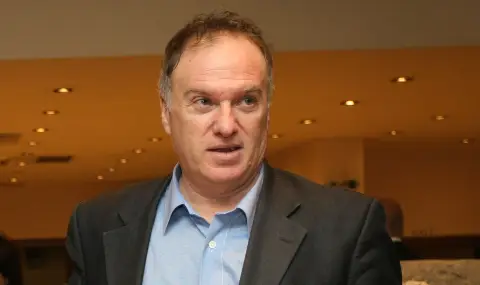Iranian President Ebrahim Raisi and his Foreign Minister Hossein Amir Abdollahian were killed in a helicopter crash on Monday after rescue teams found the wreckage in Iran's East Azerbaijan province. What will happen in Iran? Arabist professor Vladimir Chukov spoke to FACTS.
- Prof. Chukov, Iran's Supreme Leader Ayatollah Ali Khamenei has confirmed that First Vice President Mohammad Mohbar will temporarily head the country's executive branch. What will happen in Iran after the death of President Ebrahim Raisi …
- The constitution of the Islamic Republic is very clear. Article 151 clearly states that with the approval of the Supreme Leader, it is the Vice President who assumes executive power. Respectively, this has already happened. Six commissions were created - on different sectoral policies, with which it was very clearly said that the executive and the judiciary will cooperate very steadily during this period of 50 days, in which Vice President Mohaber, who is already charged with the functions of the head of state, must organize the conduct of elections. So there is nothing surprising in the moves of the government in the country.
- And will we see a new Iran after these 50 days?
- Here it is no longer possible to give an unequivocal answer, because at the first administrative level in the Islamic Republic, the cards got very mixed up. If until this moment there was a very clear candidate who would succeed Ayatollah Khamenei as Supreme Leader, it was precisely Ebrahim Raisi.
- The Minister of Foreign Affairs of the country, Hossein Amir Abdolakhian, also died in the helicopter crash. Will the shake-ups at the top of management be moderate, or can we expect upheavals?
- This is already a problem. Abdollahian, who was the foreign minister, was a very strong candidate to succeed Raisi to become president. But now there is a big question mark around all this. I say again that the cards got very mixed up. And the question is who could run for president. Look, in Iran it is not like in other countries. There we have a Commission for the Protection of the Interests of the Regime, which sifts the presidential candidates – says who can and can't run for president. And here you can already get some extremely big surprises. The members of this commission are appointed by Supreme Leader Khamenei, but as of today we can only guess who will be admitted as a presidential candidate. In Iran, the name of Ali Khamenei's son - Mojtaba Khamenei - is being strongly suggested as the successor to his father's position as supreme leader. But his father is still in office. Mojtaba Khamenei, however, why not look at the post of president… Another very strong candidate, in my opinion, from here will be the speaker of the parliament, Mohamed Bagher Ghalibaf, who has twice run for president. Perhaps depending on Ali Khomeini's likes or dislikes, he did not succeed, but he could be one of the main candidates for the presidency. A clear balance must be sought between all these very complex institutions in the Islamic Republic. We are talking about a balance between the supreme leader, the president, the parliament, the revolutionary guard, the judiciary and the army. All these institutions have their share of this “deep state” and, respectively, some kind of balance will be sought. Now - in the second parliamentary elections, a new political party appeared, a variety of the so-called conservatives. They are called neoconservatives, new conservatives. So a roulette wheel is spinning in Iran at the moment, which obviously in these 50 days until the elections will have to find an internal balance in the republic. All kinds of surprises are possible.
- Will it be moderate surprises or can shocks be expected?
- Rather the second. It's just that some individuals may appear who are not provided for in the general account. The son of Ali Khamenei is not very recognizable, it is not very clear whether people accept him. But he could make a serious breakthrough, although at the moment his father's place is still occupied. The post of president also implies a shortcut to the higher post of supreme leader. Obviously, there is another. The fact that layers are being shifted is not something foreign to Ali Khamenei. There was still no official statement on the death of the president, and Khamenei convened the National Security Council, then addressed the Iranians and began to reassure them that everything was fine, that the state was functioning. He does this very rarely and in exceptional cases. So there are clearly some tectonic layers moving well below the surface of power in Iran. Therefore, I think it is very interesting and we will soon see who will be allowed to compete in the presidential elections. This will provide many answers.
